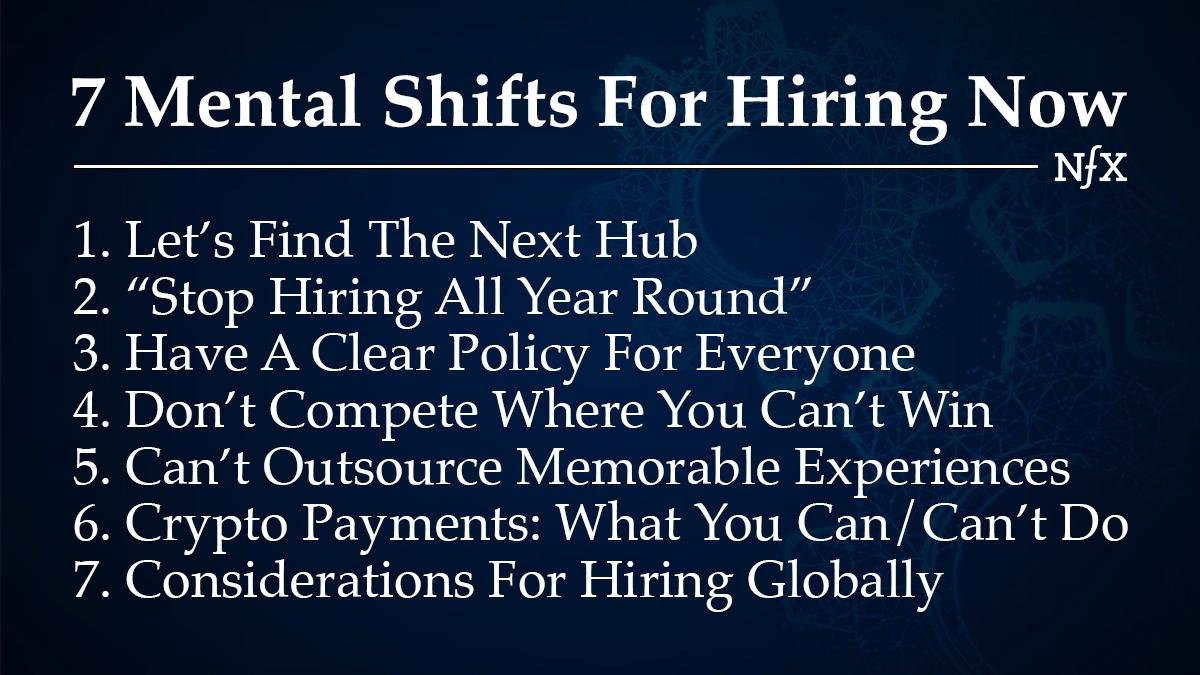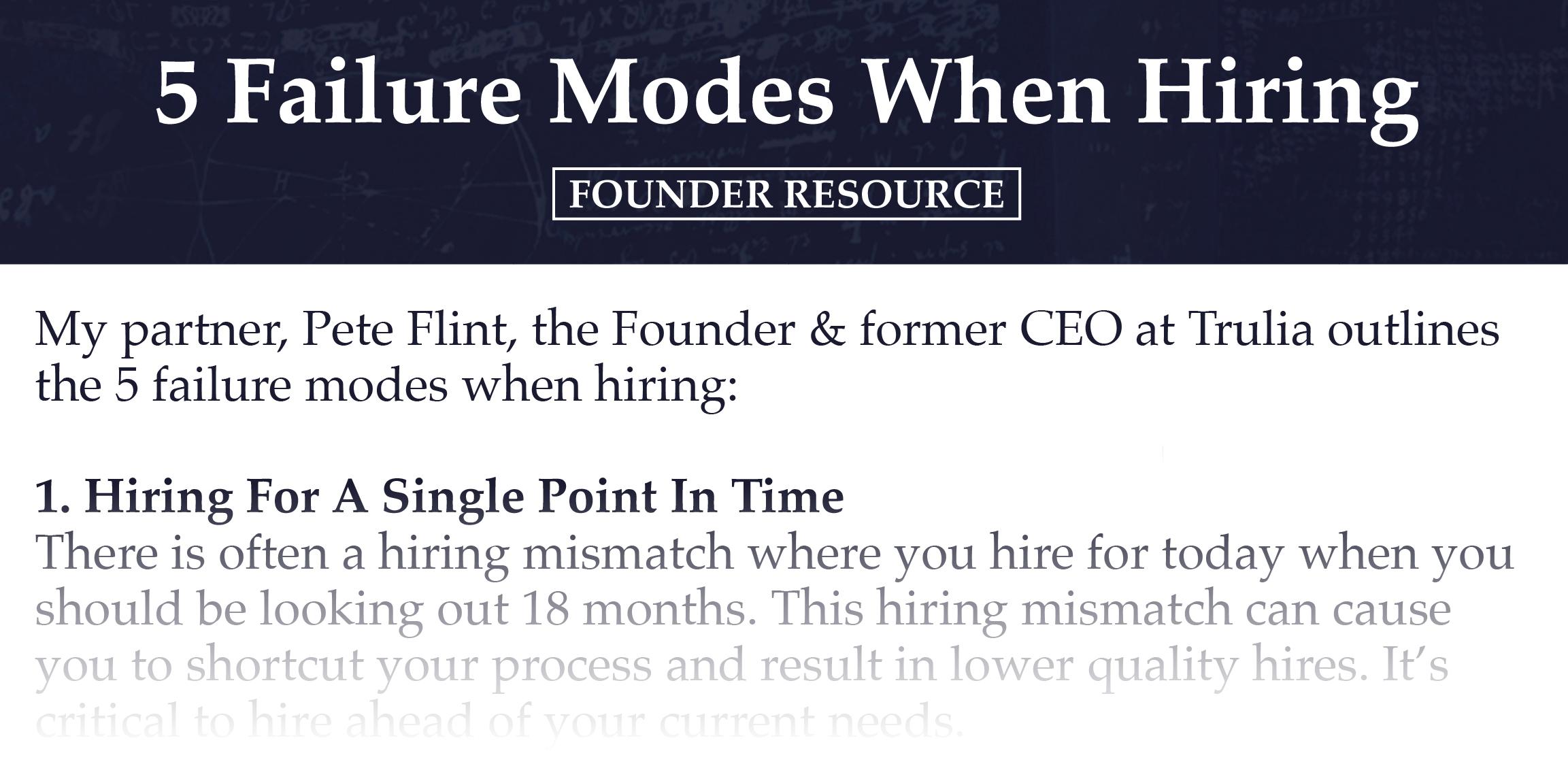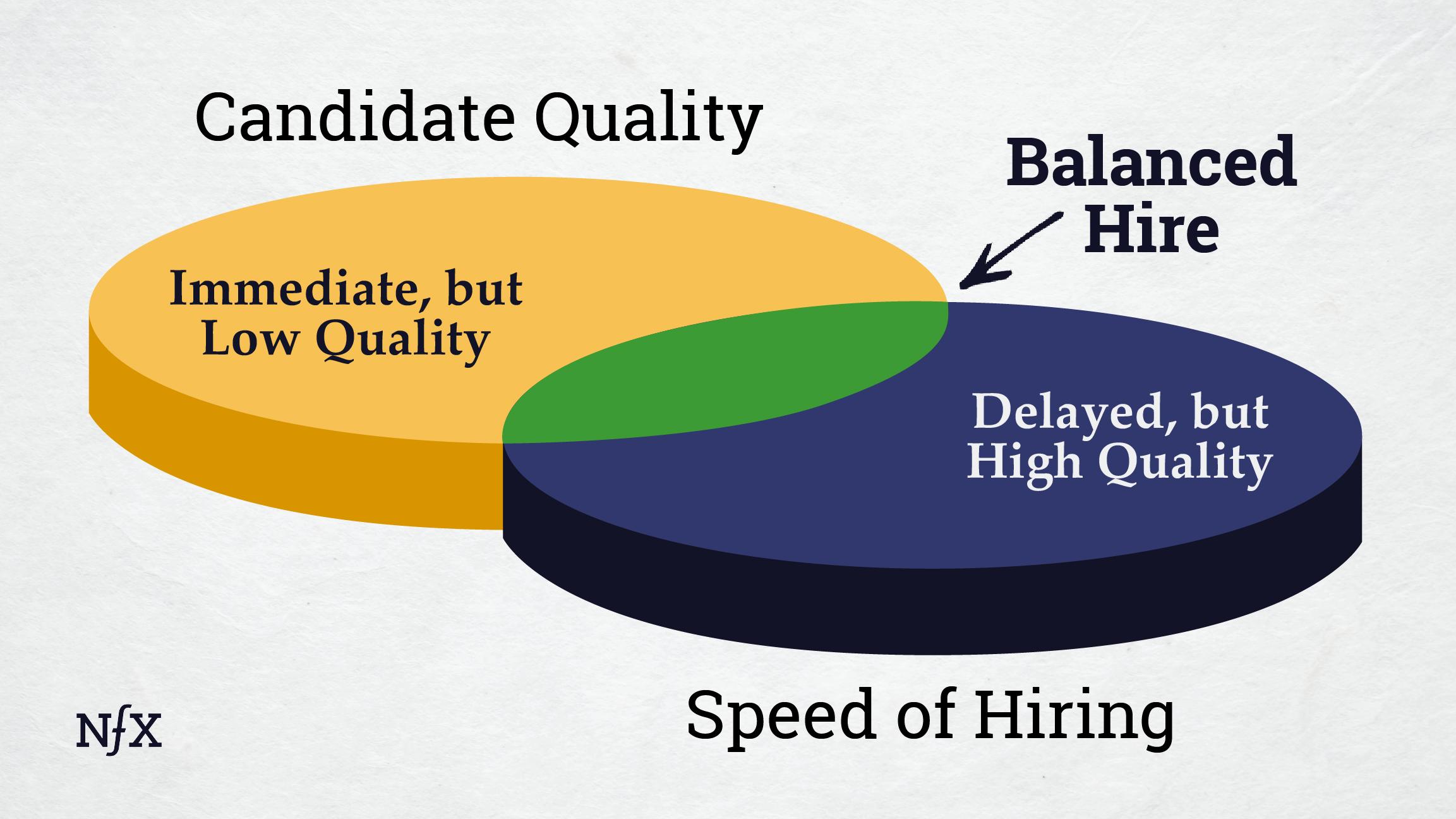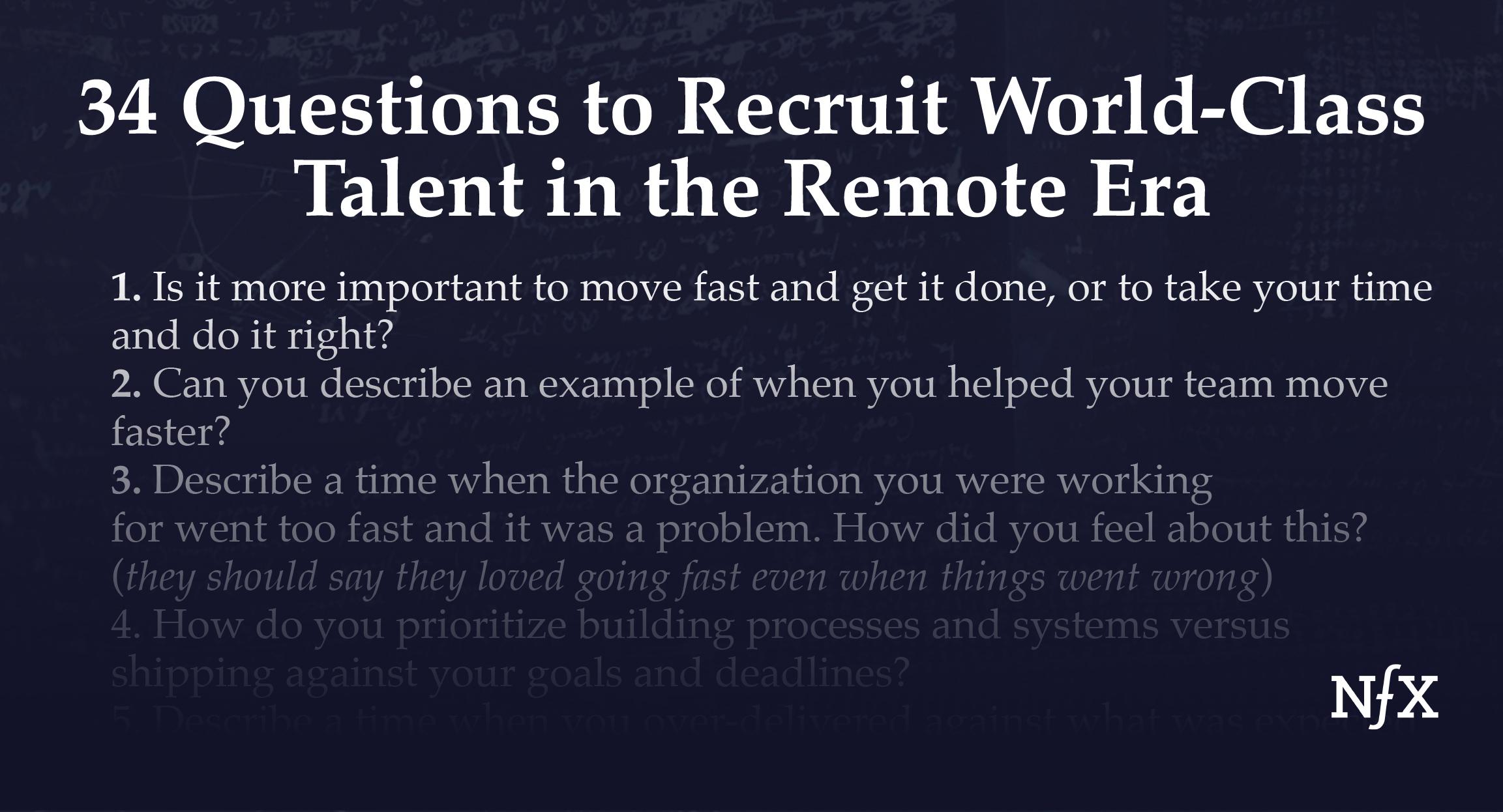

The Covid pandemic removed barriers to global hiring and remote team building. It exposed startups, by necessity, to all-new solutions for growing and bonding their teams. Most companies advanced through stages: first survival mode, then waiting it out — and now they are ready to fundamentally shift their hiring strategies to reflect our new reality. It’s clear now that there are lasting shifts in the market, and that Founders and CEOs need to update their mental models for hiring.
Eynat Guez sees this recent change in strategy more clearly than most. She’s the Co-Founder and CEO of Papaya Global, a global people & payroll platform, now valued at $3.7 Billion. Eynat is also the first-ever female CEO of a unicorn company in Israel.
Her insights on hiring are twofold. First, she builds from her own experience rapidly scaling her global team to unicorn status during the pandemic. Second, from working directly with Papaya’s clients to grow their teams. Today she shares with us her set of mental models for building a world-class team — wherever it may be.
Below are excerpts from an NFX podcast conversation between NFX General Partner Gigi Levy-Weiss and Papaya Global Founder & CEO, Eynat Guez. First-person commentary is hers.
Developing your startup’s hiring thesis
We’ve had a lot of different phases during COVID with regard to team-building. The first phase was “Okay, let’s see what’s going on here. Let’s take it easy. Maybe the world will go back to normal.” The next phase was people starting to acclimate to the new reality. But still in survival mode.
Only a few months ago did we start to see real shifts in the strategy. People now understand that things are here to stay, for better or worse. And there are currently a lot of theses for how to organize your startup.
Don’t get confused by companies that were always remote first, like GitLab and so on. [GitLab is one of the world’s largest all-remote companies with over 1,300 team members located in more than 65 countries around the world. Here is their Remote Manifesto]. It worked for them, but they worked really, really hard to make it happen. It’s not something that they just decided overnight.
I think currently for most early startups, the idea of team members working from anywhere is still a little more romantic than practical. Yes, there are a lot of good things in remote environments and remote hiring. We’ve removed barriers for a lot of people, which is great.
But there are lots of things missing as well. People still need to meet. We all know that when you put a group of people in the room, things happen. Some magic happens there. It’s different than just working together over Zoom.
In addition, if you have 20 different people working in 20 different countries, you are also increasing the complexity of managing your companies in so many different levels, tax-wise, employment labor-wise, time zone-wise — and of course, culture-wise. Even setting the team meeting is operationally a nightmare with the time zones.
With remote-first teams, you also need to work 5x as hard to build the DNA. If somebody is not feeling attached to the company and it’s just somebody who pays his salary, this is not a good thing — you wind up with people who are working for the company but they are not part of the company.
It’s Not All Or Nothing
Founders are starting to realize that it’s not all or nothing. And that the goal is to have a team that feels connected and bonded.
You can find the balance. It’s not about just having some people working remotely; we’re now really changing the whole dynamic. Companies are changing to be remote-first, or to be a company that accommodates other locations, and it’s critical to get better at planning this out for your unique startup.
One hiring superpower that you must have, mainly in the early stage, is the ability to plan ahead. Because you never have enough talent, you never have enough money, you never have enough time, right? It’s always a constant struggle and it’s always going to be the case that you want to solve a need right now. But you need to look ahead and plan – okay, what do I really, really need to do now to ensure I have the right, talented, connected, bonded people working with me in 6 months. What do I need to decide now in order to set us up for success in the long run?


Eventually, this is all about building companies that can scale. If you manage to organize your team well in the beginning, you are building the right mindsets, culture, and infrastructures in order to scale quicker afterward. This is why hiring and team strategies matter so much. As you navigate this new, increasingly complex hiring and company culture landscape, here is a new set of mental models that can help.
1. Let’s Find The Next Hub
We have 300 people at Papaya now, rapidly growing to 350. I think it’s okay to assure candidates that you’re employing remotely, but as I do internally at Papaya, I always say, “Okay, let’s find the next hub,” or, “Let’s find the next location.” I don’t want to just find talent scattered all over the world and hire them wherever they are. For our organization, at this size, that’s not the kind of company I want us to be.
You really need to be focused and spend some time on the strategy and recognize that it’s not only about hiring individual people. It’s really about connecting them and creating a group where they are, even if the groups are distributed across the globe.
2. “Stop Hiring All Year Round”
At the beginning of 2021, I got a great tip from a Founder who took a company public a few years ago. It was this: “Stop hiring all year round, because this is really a huge distraction. Have a few bootcamps for hiring every year.” Tell everyone, “Okay, we are in January now, I want you to hire in February everybody that you will need until June. And then in June, hire everyone that you will need until December.” Then this group will start together, you will have a bootcamp for training. It’ll be much, much easier for the organization to adapt, and you’ll be ready for the scale. (Of course, you can still recruit during other parts of the year. We’re always hiring, but we make an effort to hire in batches.)
We actually did this very successfully this year, once. And then, we kind of forgot that we did it, and now we are doing it again. We missed one cycle, but this was a great shift for me. It was great advice. It was a great way to focus for the organization and culturally good for the new employees.
3. Have A Clear Policy For Everyone
From the CEO perspective, you need to have a clear policy for everyone. It’s not fair to have different policies for each candidate. Sometimes you’ll lose great candidates, but you win the trust of your organization because they know it’s transparent.
Having a clear policy also helps you see the red flags. If somebody is negotiating their personal benefits, for example, “I want to work for you but I don’t want to come to the office. Even if everyone is coming to the office, I want to be excluded and so on.”
What I see in that is: “Okay. There is an issue here because this person is not a team player. He or she wants other terms.” For example, at the CEO, I cannot tell my team, “I expect you to spend long days in the office every time that we are releasing a feature,” and then I just leave the office at noon and say, “Oh yeah, I have to go home.” If I’m part of the team, I have to be a team player.
For us at Papaya, our policy is simple. You can work one day from home, then together in the office (whatever hub you are in) the other days, and then have one short day during the week.
This applies to every single employee, even if they’re single, if they have kids, male, female. It’s the same policy as before COVID.
I’m a mom myself and I have young kids, but when I meet candidates and they ask me to work shorter hours from the office or shorter hours in general so they can be at home, I tell them, “Listen, this is not a stage when we can allow this flexibility.” Maybe they should go and work at a bigger company – because at Papaya we have the same policy for everyone.
I’m not saying you need to have this same set up. I’m saying be clear and have the same policy — whatever you determine it to be — for everyone.
4. Don’t Compete Where You Can’t Win
We don’t bring any famous chefs to cook our company lunches, because I think that’s an endless game of comparing to other companies and you will always lose. There is always going to be the company that will pay more, that will bring a better benefit, and so on. You really need to assure that you bring other value. What is it that you can offer to your employees that will make them want to join?
A lot of startups cannot afford to pay the highest salary in the market. I don’t want to be there in terms of even starting this race because that’s also a never-ending game. I want to show that people who are coming to Papaya can get different values, even if this is understanding that they’re equal, that we have transparent policies, that we have flexibility for them to work from home.
Build some values that you can speak to, because candidates have more dimensions about how they want to spend their time than just, “What’s in it for me in terms of the benefits and the compensation package?”
5. You Can’t Outsource Memorable Experiences
If you have to compensate more and more in terms of salaries, that’s not going to be the right retention strategy. You really need to assure that they are happy. They feel that there is some meaning and connection.
So, for example, we did this campaign this year, bring your parents to work day. Our employees brought their parents to work to show them where they work, to show them the environment, to show them their friends. There is something about the fact that your parents don’t understand what you are doing or they don’t know how your office looks, who are your colleagues that really gets them excited. It was such a memorable experience for everyone.
Let’s create memories. Let’s be sure that we are doing something that people will feel is unforgettable and that we invested something more than money into. I think this is really about understanding that first you need to be involved. You cannot outsource this. As the CEO, this is your job.
You cannot outsource the soul of your company to other people and tell them, “Yeah, let’s do great things and build a great culture for this company.” That does not work. You need to be highly involved. Otherwise, it’s not authentic.
6. Crypto Payments: What You Can & Can’t Do (Right Now)
Because Papaya is a global people & payroll platform, we get asked a lot about crypto payments. In the beginning, most countries took a long time to understand crypto. So, they did not have specific regulations related to payments in crypto, and it was more open. But salaries are always the first thing that countries are protecting, so now we’re seeing more and more regulation that’s actually banning using crypto payments — much more than we saw two years ago.
The first thing is that many countries are not going to allow crypto payments to employees. Payroll is payroll. They need to pay locally, and that’s it. I don’t even think that most people know that in the majority of the world, you cannot even pay salaries in a different currency than your local currency. That is not allowed.
So, adding crypto is even more farfetched in terms of the country level. We do see additional components that are being used to compensate in crypto like payouts, commission plans, even equity-based crypto plans. I actually really like that structure of compensation.
All of this requires a lot of tax adjustments, so it’s not an easy thing. It’s not just, “Okay, let’s just pay them with crypto and that’s it.” If you are separating the core payroll components or your gross salary, and just keeping them on a fixed local currency, then you can play around with crypto on the variable components (e.g. sales commission) or the equity component. I definitely think that we’ll see more of this.
7. Considerations For Hiring Globally
Covid’s shift to remote work removed hiring barriers for many, which was great, but as a Founder or CEO you must think about how it actually works out having people all over the globe. Hiring globally has a lot of challenges.
First there’s the issue of needing hubs, as above, so your people aren’t alone. Second, there is payroll and tax complexity that is very, very difficult. But there are also unknowns that will surprise you, and matter more than you might think.
For example, because you don’t speak the language, you don’t know what you don’t know. Your team members experience different things, even holidays. Think about how you would feel if somebody would send you emails during your holidays asking you for an immediate response. You would think that he’s not respecting you.
When you are hiring remotely, there are some basic fundamentals that you need to prepare for. It’s not only about compensation. It never is.
Some things never change
Whether you are structuring your team as remote-first, all-remote, working from home remote or working in hubs, all in the office but with a 2 days at home — whatever you are doing, one thing remains constant in startup hiring: “You have to hire for attitude or DNA, then train for elite skill,” rather than the other way around. DNA is the most important thing. And as the Founder or the CEO, it’s up to you to define what that DNA is, and plan your hiring strategies around it.
As Founders ourselves, we respect your time. That’s why we built BriefLink, a new software tool that minimizes the upfront time of getting the VC meeting. Simply tell us about your company in 9 easy questions, and you’ll hear from us if it’s a fit.


